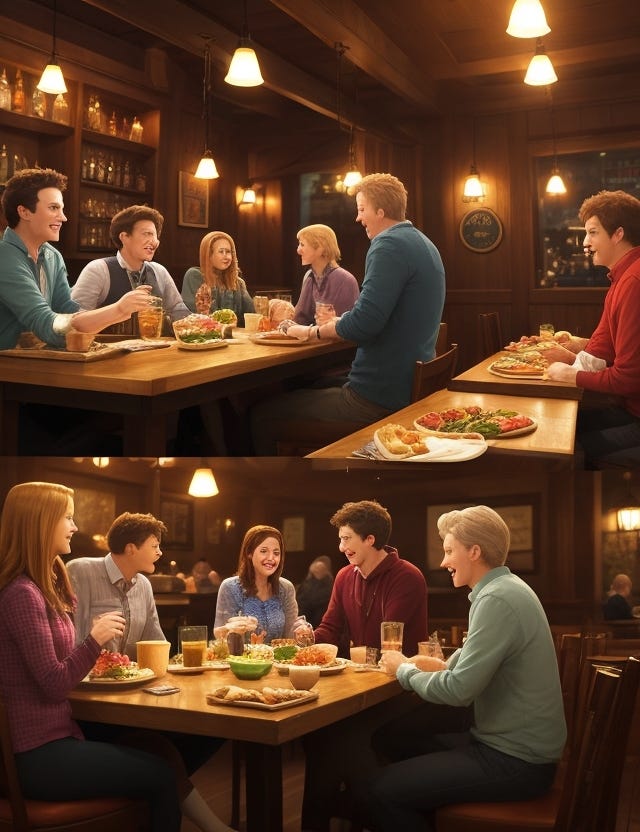
Navigating the Complex Social Landscape After a Breakup: Maintaining Relationships with Mutual Friends
The dissolution of a romantic relationship often presents a significant challenge to social dynamics, particularly when the couple shares a substantial network of mutual friends. Maintaining positive relationships with these individuals requires careful consideration, tact, and a commitment to respectful communication. This article explores the complexities of navigating this delicate social terrain and offers strategies for preserving friendships while honoring personal boundaries.
Understanding the Dynamics of Shared Social Circles After a Breakup
The immediate aftermath of a breakup often leaves individuals feeling vulnerable and emotionally charged. This can significantly impact their interactions with mutual friends, who are frequently placed in uncomfortable positions of mediating between former partners or choosing sides. The inherent loyalty conflicts can strain friendships and create a sense of unease within the social group.
The Pressure to Choose Sides
Mutual friends often face considerable pressure to choose between the former partners. This is particularly true when the breakup is acrimonious, involving accusations or significant conflict. Individuals may feel obligated to offer support to one partner over the other, potentially causing irreparable damage to their relationship with the other party. Avoiding this predicament requires a conscious effort from both former partners to allow friends to maintain their relationships independently.
The Burden of Mediation
Friends may inadvertently become mediators in the conflict, attempting to resolve disagreements or relay messages between the former partners. This can be an exhausting and ultimately ineffective process. It's crucial for former partners to understand that their friends are not equipped to handle relationship disputes and should refrain from involving them in the post-breakup complexities.
Maintaining Neutrality: A Difficult but Necessary Task
Mutual friends often struggle to maintain neutrality, particularly when one partner engages in negative behavior or attempts to manipulate the situation to their advantage. However, maintaining a neutral stance is essential for preserving the integrity of the friendships and preventing further conflict. This requires a conscious effort to avoid gossip, avoid taking sides, and refrain from offering unsolicited opinions or advice.
Strategies for Preserving Friendships After a Breakup
Successfully navigating post-breakup social dynamics requires proactive measures from both former partners, as well as a willingness to cooperate on the part of mutual friends. Open communication and a commitment to mutual respect are paramount.
Respecting Boundaries and Personal Space
One of the most important steps involves respecting each other's boundaries and personal space. This includes avoiding contact with the former partner in situations where it might cause discomfort or tension. It also means respecting the decisions of mutual friends to spend time with either partner independently. Forcing interactions or expressing resentment towards friends who maintain relationships with the ex-partner is counterproductive and damaging.
Open and Honest Communication (with limits)
While open communication is important, it's crucial to establish clear boundaries. Former partners should avoid airing grievances or engaging in lengthy discussions about the breakup in front of mutual friends. Similarly, friends should avoid becoming unwitting recipients of complaints or negative narratives from either party. If a friend attempts to draw you into negativity, politely redirect the conversation.
Prioritizing Individual Relationships
The focus should shift from the relationship dynamic to the individual friendships. Instead of viewing mutual friends as a shared resource, both former partners should prioritize nurturing those relationships independently. This means engaging in activities and conversations that are not directly related to the past relationship.
Utilizing a "Cooling-Off" Period
A temporary period of reduced contact with mutual friends can be beneficial for both former partners. This allows for emotional processing and healing, reducing the likelihood of conflict. The length of this period will vary depending on the circumstances, but it is crucial to communicate expectations clearly to avoid misunderstanding.
The Role of Mutual Friends in Navigating Post-Breakup Social Dynamics
Mutual friends play a crucial role in mediating the post-breakup social landscape. Their ability to maintain neutrality, offer support, and uphold boundaries is vital for fostering a healthy and respectful environment for all involved.
Maintaining Neutrality and Avoiding Gossip
Mutual friends must actively avoid taking sides or engaging in gossip about the former partners. It's important to listen empathetically without offering judgment or biased opinions. Maintaining a neutral stance ensures that friendships with both parties are preserved.
Setting Boundaries with Former Partners
Mutual friends should set clear boundaries with both former partners, discouraging the sharing of negative information or the attempt to involve them in conflicts. This may require politely refusing to participate in conversations that focus on blaming or criticizing the other person. A firm, yet compassionate, approach is necessary.
Offering Support Without Taking Sides
Mutual friends can offer support to both former partners without taking sides by acknowledging their individual feelings and experiences. This support should be focused on their well-being and emotional recovery, rather than taking a position in the conflict.
Long-Term Strategies for Maintaining Social Harmony
Successfully navigating the post-breakup social landscape is an ongoing process that requires ongoing commitment and conscious effort. Long-term strategies focus on rebuilding trust and fostering healthy relationships.
In conclusion, navigating the complexities of shared social circles after a breakup requires careful consideration, tact, and a commitment to respectful communication. By adopting the strategies outlined above, both former partners and mutual friends can work towards preserving friendships while minimizing conflict and fostering a healthy social environment for all involved. The process is challenging, but with patience, understanding, and a willingness to compromise, positive outcomes are achievable.
No comments:
Post a Comment
Note: Only a member of this blog may post a comment.